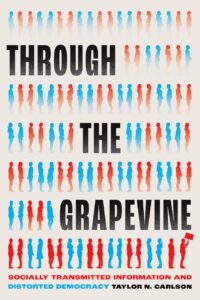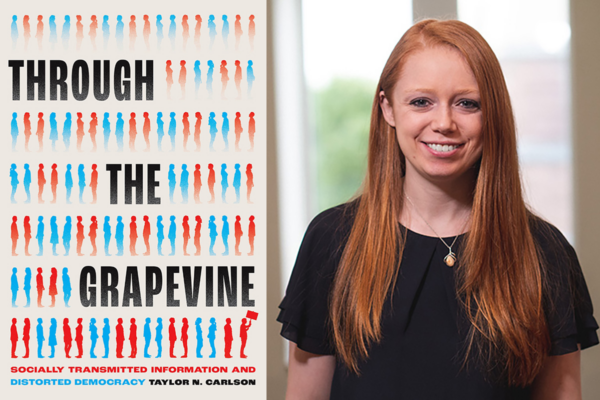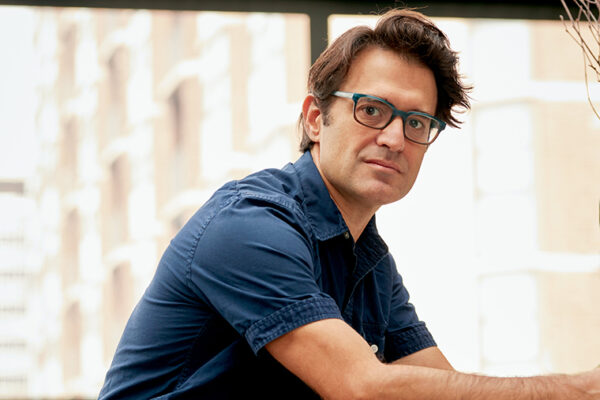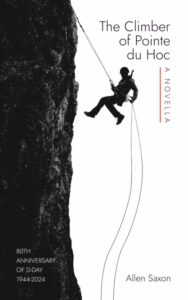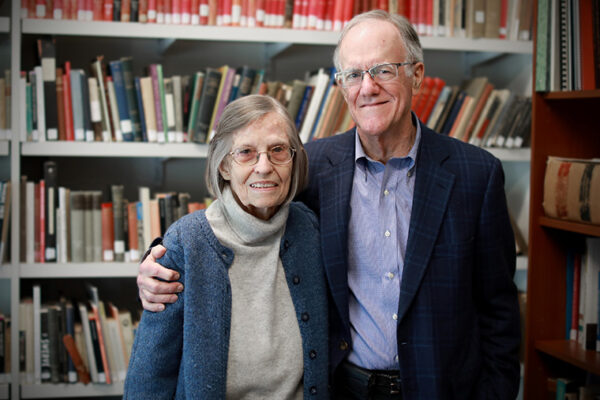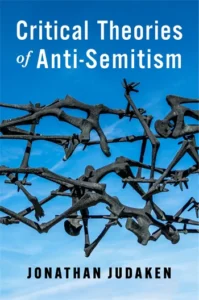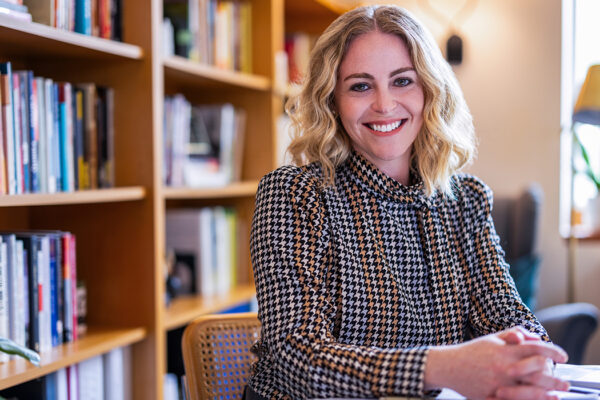Through the Grapevine
Socially Transmitted Information and Distorted Democracy
An enlightening examination of what it means when Americans rely on family and friends to stay on top of politics. Accurate information is at the heart of democratic functioning. For decades, researchers interested in how information is disseminated have focused on mass media, but the reality is that many Americans today do not learn about […]
Book explores consequences of political conversations
In her new book, political scientist Taylor Carlson, in Arts & Sciences, explores how political information changes as it flows from the news media to person to person. Her research shows that socially transmitted information becomes sparse, biased, less accurate and mobilizing — fueling a “distorted democracy.”
Oppenheimer named Religion & Politics executive editor
Mark Oppenheimer, a well-known religion journalist and author, is the new executive editor of Religion & Politics, an online journal published by WashU’s John C. Danforth Center on Religion and Politics.
WashU receives grant to address economic mobility of Black youth
Washington University in St. Louis will receive a $650,000 grant for a collaborative community project focused on improving economic mobility for Black youth in the St. Louis area.
The Climber of Pointe du Hoc
A novella
Published to commemorate the 80th Anniversary of D-Day in June, The Climber of Pointe du Hoc, by Allen Saxon, AB ’71, weaves a tender love story into the gripping — and grim — Allied invasion of Europe. Caleb Huddleston, a quiet young man from Wyoming, enlists in 1942 and quickly finds himself in the town […]
War magnifies politicians’ gendered behavior, public biases, research finds
In the early days of conflict when tension and fear are heightened, new research from political scientists in Arts & Sciences at Washington University in St. Louis finds women politicians are less likely to engage with the public and, when they do, are more likely to take on more nurturing roles.
A transformative gift for classics
The Department of Classics in Arts & Sciences at Washington University in St. Louis has received an estate commitment from honorary emeritus trustee John H. Biggs, PhD ’83, and his late wife, classics scholar Penelope Biggs, PhD ’74, MA ’68, to name the John and Penelope Biggs Department of Classics.
Tokarz honored by AALS
Karen Tokarz, the Charles Nagel Professor of Public Interest Law & Policy, received the William Pincus Award from the Association of American Law Schools during the organization’s conference on clinical legal education May 3.
Critical Theories of Anti-Semitism
Despite its persistence and viciousness, anti-Semitism remains undertheorized in comparison with other forms of racism and discrimination. How should anti-Semitism be defined? What are its underlying causes?
Caitlyn Collins
Caitlyn Collins, an associate professor of sociology in Arts & Sciences, has focused her career on researching and advocating for policy solutions for working mothers and their families. Now that she’s a working mother herself, her work has new meaning.
Older Stories
